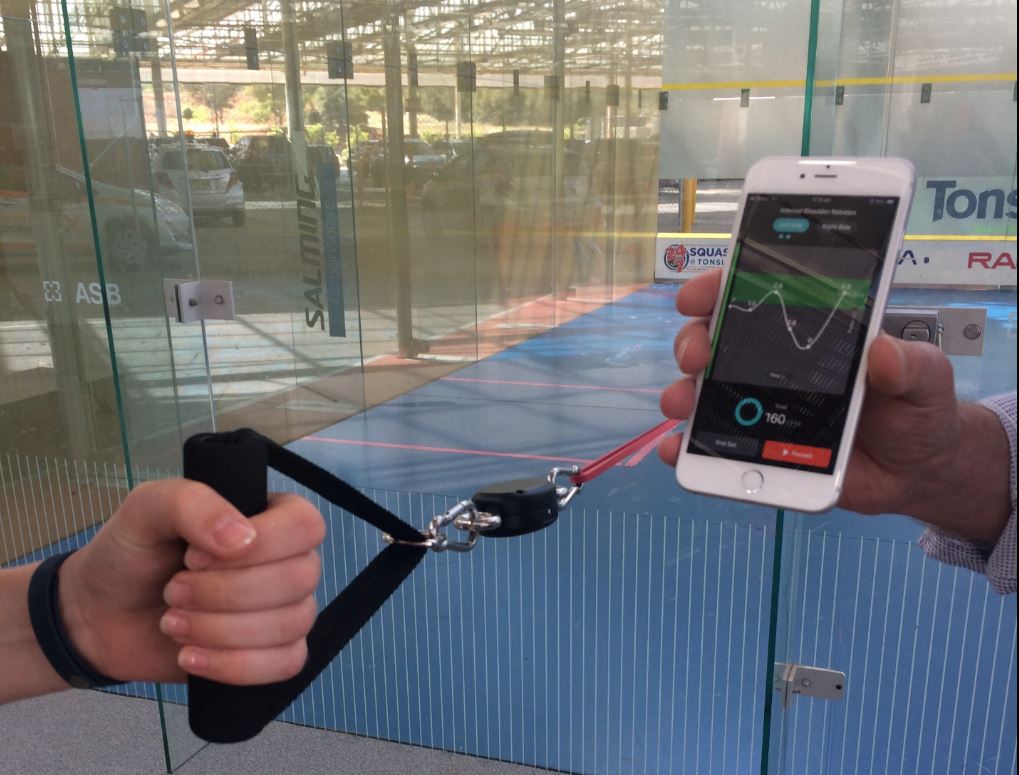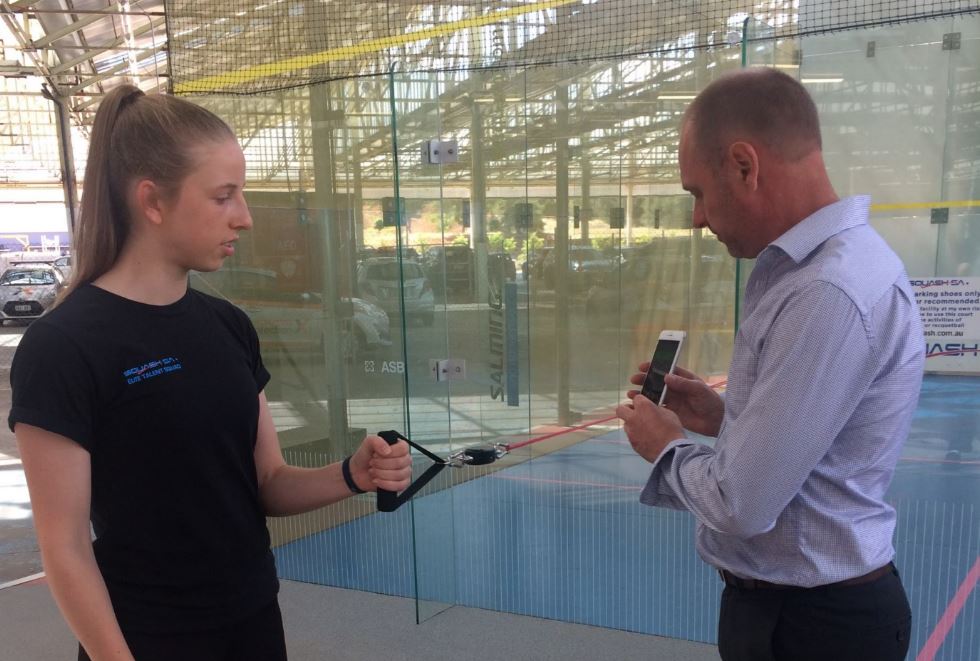
An Adelaide invention that communicates sport injury rehabilitation in real time is set for more trials and export markets.
The prototype, delivered through Flinders University’s innovative Medical Device Partnering Program (MDPP), is one of the latest projects to receive support from the State Government’s Medical Technologies Program.
Developed by Prohab chief executive, physiotherapist Lyndon Huf, the device connects to resistance bands to precisely measure the force applied to the band.
The data is then captured and sent to an app where it can be seen instantly by medical professionals and patients to accurately track treatment and recovery.
The device aims to help and motivate patients recovering from injury, or surgery, by keeping track of real time progress. In addition, the device will help medical professionals make better and more tailored treatment recommendations to patients.
With support from the program and biomedical engineers from the MDPP, Prohab now has a prototype for trial and manufacture. The company aims to make the device in South Australia and export it worldwide, strengthening the State’s economic future by driving economic growth and creating new jobs locally.
Prohab is currently trialling the device with athletes from Squash SA and is in discussion with several national and international sporting organisations.
The device is an example of a product that can be manufactured here in South Australia and sold in markets worldwide – from physios, rehabilitation specialists to gyms and sports clubs.
Mr Huf, who is working with junior South Australian squash player Alex Haydon on preliminary trials at the squash court at Tonsley, says the MDPP’s technical expertise has been a great asset.
“The opportunity to bring research and technical expertise to bear on an early-stage commercial project is tremendous. The program helps to take concepts into reality in a really innovative way,” Mr Huf says.
“The next step for us is refining the device and building the software to go with it. Then it’s about proving the device’s value to a selection of industry champions, and securing strategic investment so we can bring it to market as soon as possible.
“We know that arming patients with visual feedback in real time helps improve compliance with rehabilitation exercises, so this simple idea could have a big impact on the health and quality of life for many people following surgery or injury,” says Flinders University Professor Karen Reynolds, director of the MDPP.
“We’re delighted to have the opportunity to apply our engineering expertise, and have high hopes that this device will create new, high-value, export-focused South Australian jobs,” Professor Reynolds says.

Other projects supported in the latest round of the Medical Technologies Program include:
Australian Orthopaedic Fixations Pty Ltd: to assist Austofix in the development and functioning prototype of a device to assist orthopaedic surgeons when fixing bone fractures. They will also receive assistance to design and build a wireless system and mobile application to enable pre-calibration of the device and control from a smart device.
Sigma Ergonomics: to design and build a new digitally controlled exoskeletal arm for use by sonographers to ensure they are adequately supported when conducting ultrasounds on patients.
Healthcare Innovations Australia: to conduct a validation study of Exoflex’s functionality as a clinical assessment tool in hand therapy.
The MDPP at Flinders University is funded by the State Government’s Medical Technologies Program. It is an innovative model for collaboration between inventors, researchers, end-users and commercial partners.
It partners medical innovators with leading biomedical engineers, providing them with research and development assistance, as well as market intelligence to help turn bright ideas from the laboratory and into commercial reality, benefitting the wider community and creating new opportunities for local manufacturers.
For more information on the Medical Technologies Program, go to the link

